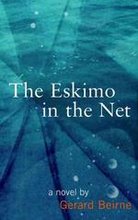Writers' Workshops or How Do We Cope With Gerry?

A lot of energy has been expended worrying and wondering over the value of workshops and creative writing courses. One school (hah!) of thought has it that they are pointless since good writers are born not made. Some argue that they only serve to create a ‘type’ of writer – in other words, writers that all read and sound the same. If this is the case, I would suggest that this is a problem resulting from the actual writing instruction and not from the concept of instruction. As regards writers being born, it may well be that many writers do come into this world better equipped for the task, but quite frankly I find it preposterous that such a writer could not benefit from thinking about and understanding their craft even more.
This then is the purpose of workshops and courses etc. is it not – to help a writer become even better at what he or she is doing?
If the workshops or courses fail in this regard (and many do), then the construct may be at fault or the execution of it. I have taken a lot of workshops, and I have run a lot of them. I completed a two year Master of Fine Arts in Creative Writing, and I have taught Creative Writing courses to undergraduates. At my MFA program in Eastern Washington I had the very good fortune to work with one of the very best instructors you could ever wish for, John Keeble. But I do have to say that the vast majority of instructors I have witnessed are simply not trained well enough - if at all. I say this with respect. Many writers are selected to instruct on the basis of their writing skills not their teaching ones. They are chosen because they are well known with a well received body of work. Unfortunately this does not necessarily mean that they know how to impart the knowledge of their writing skills. You do not have to be a household name or a very successful writer to be a good instructor.
Indeed I have seen one of Ireland’s most beloved prose writers listen carefully to his students reading from their work before telling them each time that it was quite wonderful and that it reminded him of a story which he then proceeded to tell. I also witnessed a leading American poet effectively take a red pen to students’ poems to cross out lines or insert words of her own. Next!
In contrast I remember during my MFA when I brought in a section of my novel for the first time to our workshop sessions. The form of the novel was quite different than most others. It employed a lot of poetic technique – white space, short condensed lines, vivid imagery etc. Organically the nature of the story seemed to demand this. Anyway I was quite concerned that we would get bogged down in commentary which was more focused on the ‘differences’ rather than how the novel was working both structurally and from a narrative point of view. I will always remember John Keeble’s opening comments. A brief smile and then, “So, how do we cope with Gerry?”
From here he led a fifteen minute discussion which probed the structure of my novel providing everyone, myself included, with helpful insight into the how the structure was operating and giving us all a way to subsequently critique it. The great poet and writing instructor Richard Hugo used to begin his writing courses by warning his students that he would spend all of his time trying to get them to write just like him, and he warned them to resist it in every way. Well, John worked from the writer’s perspective out. “How do we cope with Gerry?”
The biggest mistake, I think, in writing workshops comes from a grave misunderstanding of their intent. People come to the workshop armed with their manuscripts which they toss liberally around the table with the gormless belief that they will return to them the better for wear.
THE PURPOSE OF A WRITERS’ WORKSHOP IS NOT TO MAKE THE SUBMITTED PIECES OF WRITING BETTER.
The purpose of a writers’ workshop is to make all future pieces of writing better.
It does this, and it can only do this, by enabling the writer to become a better self-critic. The pieces of writing submitted serve as samples to practice on and nothing more. They are of more benefit to the other participants than to the writer him or herself. And like anything we might use to practice with, there is a distinct possibility that they will be damaged in the process.
As participants in a workshop we practice critiquing other people’s work in order to learn the critical process to become a better self-critic. We practice on other people’s work since it is easier to do this than to practice on our own work. We are too close to it and too defensive of it.
To practice critiquing other people’s work we have to have a critical process and a language of criticism. It is the instructor’s or facilitator’s job to outline the process and teach the language. This has nothing to do with technical jargon (although technical terms may be useful) and is in no way lofty or exclusive. One of the biggest failings of workshops is that the participants are often not taught these two necessary steps. Without them people will speak in a variety of languages which will be interpreted in many different ways and will rarely be understood. Without understanding the process, many of these languages will in fact be spoken through the participants’ hats.
Most writing workshops I have participated in failed to impart the process and language of criticism. Indeed many of them seemed to operate on the premise that the aim was to improve a particular piece of writing. This results from incompetent facilitators and instructors. There is no other explanation. However a well run workshop will unquestionably be of great value to a writer and will allow him or her develop the critical skills necessary to improve their work.









